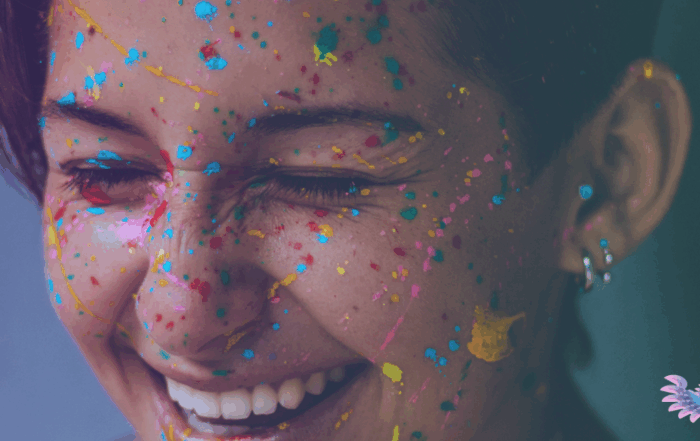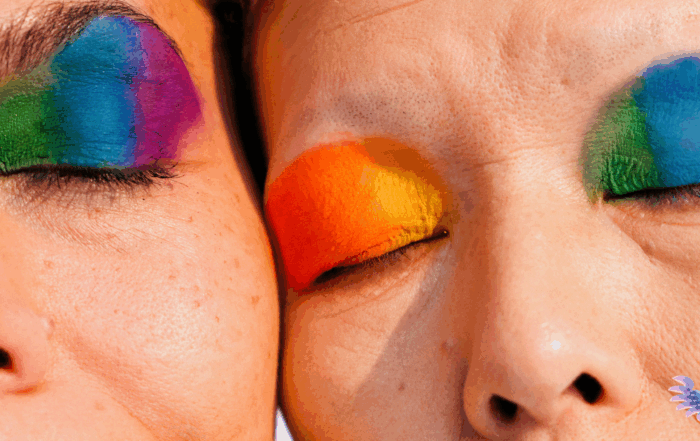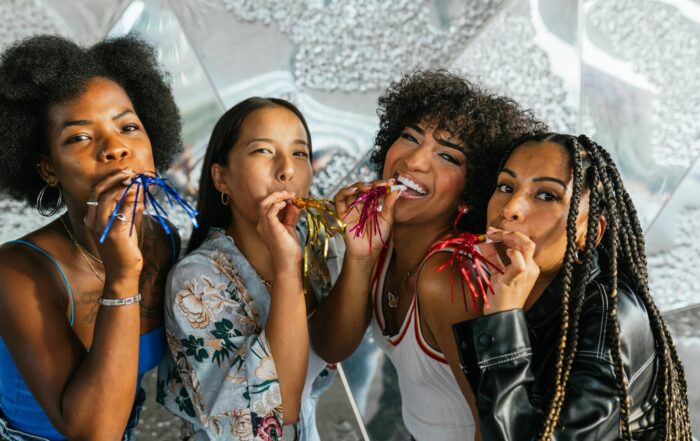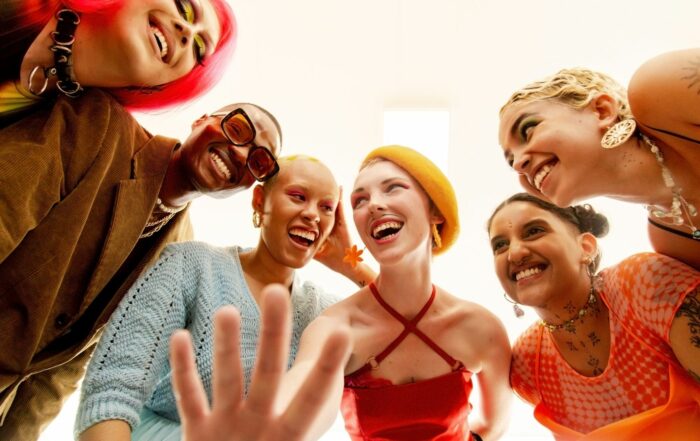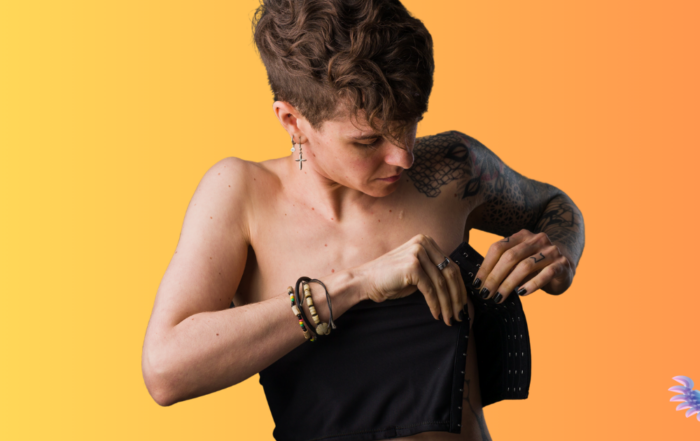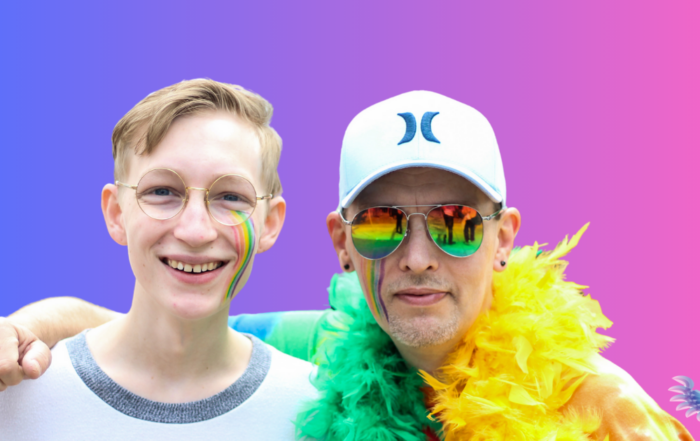Since 1976, we have dedicated the whole month of February to celebrating black history in the USA. This special celebration covers so many layers; on the one hand, it recognizes the essential contributions of the Black community to a thriving country that would not be the same without it. On the other hand, we need to raise our voices AGAIN about a social justice that is still missing, and that is urgent if humanity even intends to pass the test and evolve into a civilization where everyone can feel safe and treated equally.
Here are a few facts taken from the Pew Research Center (www.pewresearch.org): The black population in the USA reached 47.9 million in 2022, representing a 32% increase since 2000. Immigrants represent an essential part of that population, with 5.1 million. Utah, Nevada, and Hawaii have had the fastest growth in this population since 2010, and New York City has the largest population, with 3.6 million. Educational attainment is rising for Black Americans, with 26.1% of adults 25 years old and older with at least a bachelor’s degree, compared to 14.5% in 2000. 51% of Black households had an income higher than $50K a year in 2022. At the same time, the unemployment rate was 5.2% in December 2023, compared to the national rate of 3.7% (source www.CNBC.com).
When it comes to the experience of Black trans people, who live at the intersection of more than one minoritized identity, thus experiencing two or more factors that aggravate discrimination of all kinds, from segregation and lack of opportunities to violence, the negative impact is exponential! According to data from the Human Rights Campaign (www.HRC.org), since 2013, more than 300 transgender people have been victims of fatal violence, of which 63% have been Black transgender women. Minority stress and the impact on a person’s mental health is terrible, but when you put more layers of intersectionality to it, that’s a challenge of a different magnitude.
The threat of discrimination is so high that many transgender people live in fear and avoid everyday situations to socialize, apply for jobs, come out at work for fear of losing a job or not getting one, seek medical treatment, and speak about their gender or sexuality with family, friends, and other members of their community, attending church, playing sports… the list is endless! And the data shows that it is far worse for those at the intersection of being both trans and Black (ustranssurvey.org)
At the TransFamily Alliance, we have years of experience working with the intersections that gender diverse people and their families experience and helping them live happy, healthy, successful lives. From our experience, there are two things parents need to help their children, education and support. Parents should have a non-judgemental place to go, that offers education based on scientific data as well as professional and lived experience.
Creating consciousness against Black trans discrimination should start by educating our families and communities: 1.4% of Black adults are transgender, and 35% of Black adults know someone who´s trans. Still, 68% of Black adults still think that someone’s gender is determined by their sex assigned at birth, which is more than 60% of the general population. In terms of acceptance of trans people among Black adults, 31% still think acceptance gained by the trans community has been correct, and 29% believe that it’s gone too far (pewresearch.org).
The road is long, and the upcoming election has brought about even more violence against the trans community in the form of anti-trans laws in the pursuit of power at the expense of a very small and already traumatized population. Pointing it out is not intended to make us depressed but to understand the critical role of our Black trans community in all this so we can create a better world together, fighting hand in hand. Lest we forget that some of the most brave and powerful voices for change for all LGBT people have come from the Black community, especially black transwomen.
Another pillar of the TransFamily Alliance is understanding the importance of family and community; that’s why we say that “we’re better together.” We all need each other and it’s so important to respect the diversity of our community; no one here will be left behind. Our hearts and commitment are to support and uplift the Black trans community throughout the year and we´ll celebrate all of February by empowering Black trans voices.
If you know parents in the community who need help, resources, and a friendly hand, let them know about us; we’d be thrilled to welcome them to our family.
Since 1976, we have dedicated the whole month of February to celebrating black history in the USA. This special celebration covers so many layers; on the one hand, it recognizes the essential contributions of the Black community to a thriving country that would not be the same without it. On the other hand, we need to raise our voices AGAIN about a social justice that is still missing, and that is urgent if humanity even intends to pass the test and evolve into a civilization where everyone can feel safe and treated equally.
Here are a few facts taken from the Pew Research Center (www.pewresearch.org): The black population in the USA reached 47.9 million in 2022, representing a 32% increase since 2000. Immigrants represent an essential part of that population, with 5.1 million. Utah, Nevada, and Hawaii have had the fastest growth in this population since 2010, and New York City has the largest population, with 3.6 million. Educational attainment is rising for Black Americans, with 26.1% of adults 25 years old and older with at least a bachelor’s degree, compared to 14.5% in 2000. 51% of Black households had an income higher than $50K a year in 2022. At the same time, the unemployment rate was 5.2% in December 2023, compared to the national rate of 3.7% (source www.CNBC.com).
When it comes to the experience of Black trans people, who live at the intersection of more than one minoritized identity, thus experiencing two or more factors that aggravate discrimination of all kinds, from segregation and lack of opportunities to violence, the negative impact is exponential! According to data from the Human Rights Campaign (www.HRC.org), since 2013, more than 300 transgender people have been victims of fatal violence, of which 63% have been Black transgender women. Minority stress and the impact on a person’s mental health is terrible, but when you put more layers of intersectionality to it, that’s a challenge of a different magnitude.
The threat of discrimination is so high that many transgender people live in fear and avoid everyday situations to socialize, apply for jobs, come out at work for fear of losing a job or not getting one, seek medical treatment, and speak about their gender or sexuality with family, friends, and other members of their community, attending church, playing sports… the list is endless! And the data shows that it is far worse for those at the intersection of being both trans and Black (ustranssurvey.org)
At the TransFamily Alliance, we have years of experience working with the intersections that gender diverse people and their families experience and helping them live happy, healthy, successful lives. From our experience, there are two things parents need to help their children, education and support. Parents should have a non-judgemental place to go, that offers education based on scientific data as well as professional and lived experience.
Creating consciousness against Black trans discrimination should start by educating our families and communities: 1.4% of Black adults are transgender, and 35% of Black adults know someone who´s trans. Still, 68% of Black adults still think that someone’s gender is determined by their sex assigned at birth, which is more than 60% of the general population. In terms of acceptance of trans people among Black adults, 31% still think acceptance gained by the trans community has been correct, and 29% believe that it’s gone too far (pewresearch.org).
The road is long, and the upcoming election has brought about even more violence against the trans community in the form of anti-trans laws in the pursuit of power at the expense of a very small and already traumatized population. Pointing it out is not intended to make us depressed but to understand the critical role of our Black trans community in all this so we can create a better world together, fighting hand in hand. Lest we forget that some of the most brave and powerful voices for change for all LGBT people have come from the Black community, especially black transwomen.
Another pillar of the TransFamily Alliance is understanding the importance of family and community; that’s why we say that “we’re better together.” We all need each other and it’s so important to respect the diversity of our community; no one here will be left behind. Our hearts and commitment are to support and uplift the Black trans community throughout the year and we´ll celebrate all of February by empowering Black trans voices.
If you know parents in the community who need help, resources, and a friendly hand, let them know about us; we’d be thrilled to welcome them to our family.
